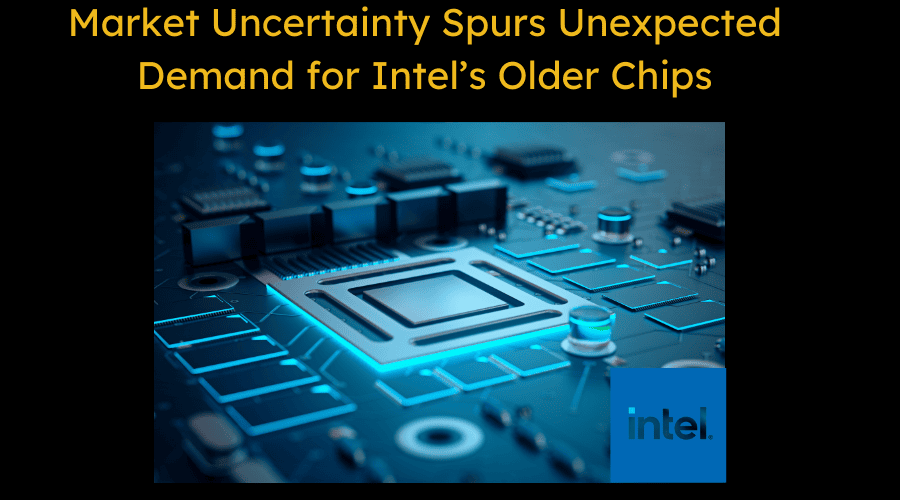Market Uncertainty Spurs Unexpected Demand for Intel’s Older Chips
Intel is experiencing a surprising surge in demand for its legacy PC and server processors as economic fears and the escalating Sino-U.S. trade tensions prompt customers to prioritize cost-effective hardware options, company leaders revealed Thursday.
The strained global trade environment—fueled by President Donald Trump’s expansive tariff policy and China’s retaliatory measures—has customers hedging against rising prices by purchasing older-generation chips instead of newer, more expensive models.
Michelle Johnston Holthaus, head of Intel’s product division, noted during a post-earnings call, “In client, we are seeing strong demand on older-gen parts and in data center as well.”
She attributed this trend to broader market unease, adding, “Macroeconomic concerns and tariffs have everybody hedging their bets.”
Despite issuing a weaker-than-expected forecast for the June quarter, the company exceeded Wall Street expectations in Q1 due to clients stockpiling processors ahead of potential price hikes.
Related story: Trump Administration Signals Tariff Reduction on Chinese Imports Amid Economic Pressures
Shifting Preferences Amid Trade and Economic Turmoil
Although chips are currently exempt from Trump’s tariffs, looming risks persist. A notice from the China Semiconductor Industry Association (CSIA) earlier this month indicated that U.S.-made chips could soon face tariffs of 85% or more as part of China’s response.
David Zinsner, Intel’s chief financial officer, raised concerns about the implications of this volatile trade backdrop.
“The very fluid trade policies in the U.S. and beyond, as well as regulatory risks, have increased the chance of an economic slowdown with the probability of a recession growing,” he said. “We will certainly see costs increase.”
Industry experts caution that rising tariffs could stall any near-term rebound in the PC market, a development that may hinder Intel’s efforts to rekindle demand with new AI-powered chip offerings and an upcoming Microsoft Windows cycle.
“Demand for older-generation chips is a flashing macro signal,” observed Michael Ashley Schulman, chief investment officer at Running Point Capital. “In a shaky economic climate, ‘good enough’ beats bleeding edge.”
However, some analysts argue that reliance on outdated processors could blur expectations for Intel’s AI-centric PC chips.
Bob O’Donnell, lead analyst at Technalysis Research, warned that the appeal of budget-friendly options may undercut the adoption of more advanced chips, ultimately affecting Intel’s profitability.
Read next: SK Hynix Reports Soaring Profits, Eyes AI Expansion Amid Tariff Scrutiny

